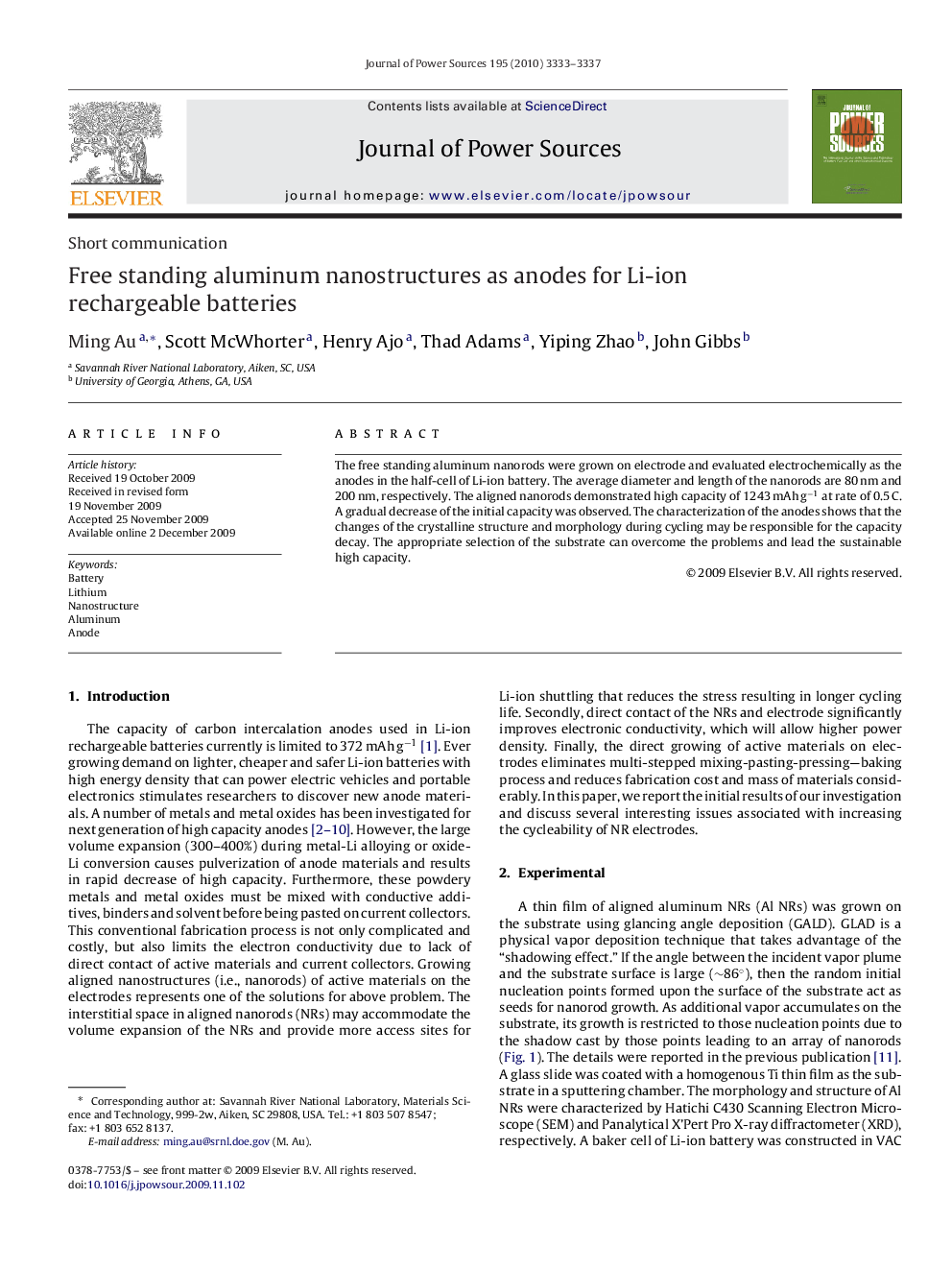| Article ID | Journal | Published Year | Pages | File Type |
|---|---|---|---|---|
| 1290530 | Journal of Power Sources | 2010 | 5 Pages |
Abstract
The free standing aluminum nanorods were grown on electrode and evaluated electrochemically as the anodes in the half-cell of Li-ion battery. The average diameter and length of the nanorods are 80 nm and 200 nm, respectively. The aligned nanorods demonstrated high capacity of 1243 mAh g−1 at rate of 0.5 C. A gradual decrease of the initial capacity was observed. The characterization of the anodes shows that the changes of the crystalline structure and morphology during cycling may be responsible for the capacity decay. The appropriate selection of the substrate can overcome the problems and lead the sustainable high capacity.
Related Topics
Physical Sciences and Engineering
Chemistry
Electrochemistry
Authors
Ming Au, Scott McWhorter, Henry Ajo, Thad Adams, Yiping Zhao, John Gibbs,
